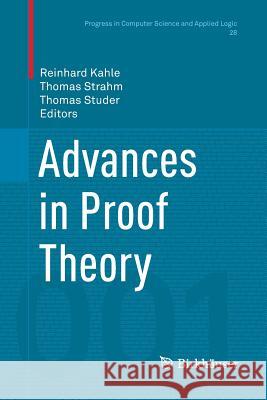Advances in Proof Theory » książka
topmenu
Advances in Proof Theory
ISBN-13: 9783319805139 / Angielski / Miękka / 2018 / 425 str.
Kategorie:
Kategorie BISAC:
Wydawca:
Birkhauser
Seria wydawnicza:
Język:
Angielski
ISBN-13:
9783319805139
Rok wydania:
2018
Wydanie:
Softcover Repri
Ilość stron:
425
Waga:
0.61 kg
Wymiary:
23.39 x 15.6 x 2.26
Oprawa:
Miękka
Wolumenów:
01
Dodatkowe informacje:
Wydanie ilustrowane











